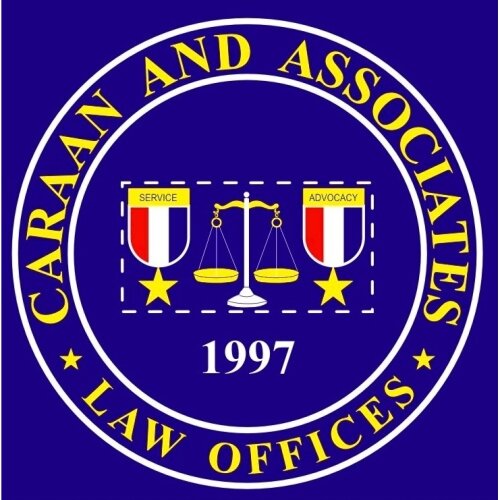Best Brain Injury Lawyers in Manila
Share your needs with us, get contacted by law firms.
Free. Takes 2 min.
List of the best lawyers in Manila, Philippines
About Brain Injury Law in Manila, Philippines
Brain injury law in Manila, Philippines covers legal matters related to personal injury cases where an individual sustains damage to the brain due to negligence or intentional harm. This area of law aims to provide compensation to those who have suffered brain injuries and ensure that responsible parties are held accountable.
Why You May Need a Lawyer
You may need a lawyer for brain injury cases in Manila if you or a loved one have experienced a brain injury due to an accident, medical malpractice, workplace incident, or any other situation where negligence or wrongdoing is involved. A lawyer can help you navigate the legal system, gather evidence, negotiate with insurance companies, and ensure you receive fair compensation for your injuries.
Local Laws Overview
In Manila, Philippines, laws related to brain injuries are governed by the Civil Code, as well as specific statutes and regulations that apply to personal injury cases. It is important to be aware of the statute of limitations for filing a claim, the types of damages that can be recovered, and any legal requirements for proving negligence in a brain injury case.
Frequently Asked Questions
1. What types of accidents can cause brain injuries?
Brain injuries can result from various accidents, including car crashes, falls, sports injuries, and workplace incidents.
2. How can I prove negligence in a brain injury case?
To prove negligence, you must show that the responsible party owed you a duty of care, breached that duty, and that breach directly caused your brain injury.
3. What damages can I recover in a brain injury case?
You may be able to recover damages for medical expenses, lost wages, pain and suffering, and other losses related to your brain injury.
4. How long do I have to file a brain injury claim in Manila?
The statute of limitations for personal injury claims in Manila is typically two years from the date of the injury.
5. Do I need to go to court for a brain injury case?
Many brain injury cases are settled out of court through negotiations with insurance companies, but some cases may require litigation.
6. Can I afford to hire a lawyer for my brain injury case?
Many personal injury lawyers work on a contingency fee basis, meaning they only get paid if you win your case and receive compensation.
7. Can I still file a claim if the brain injury occurred some time ago?
It is best to consult with a lawyer to determine if you can still file a claim based on the statute of limitations and other factors specific to your case.
8. What should I do if I suspect someone else's negligence caused my brain injury?
Contact a lawyer experienced in brain injury cases to discuss your situation and determine the best course of action.
9. Can I file a claim on behalf of a loved one who suffered a brain injury?
If your loved one is unable to file a claim themselves, you may be able to do so as their legal representative or guardian.
10. How can a lawyer help me with my brain injury case in Manila?
A lawyer can provide legal advice, represent you in negotiations or court proceedings, gather evidence to support your claim, and help you navigate the complexities of the legal system.
Additional Resources
For more information on brain injuries and legal assistance in Manila, you can contact the Philippine Brain Injury Association or consult with the Integrated Bar of the Philippines.
Next Steps
If you or a loved one have suffered a brain injury and need legal assistance in Manila, it is important to consult with a qualified lawyer who specializes in personal injury cases. They can assess your situation, explain your legal options, and help you seek the compensation you deserve for your injuries.
Lawzana helps you find the best lawyers and law firms in Manila through a curated and pre-screened list of qualified legal professionals. Our platform offers rankings and detailed profiles of attorneys and law firms, allowing you to compare based on practice areas, including Brain Injury, experience, and client feedback.
Each profile includes a description of the firm's areas of practice, client reviews, team members and partners, year of establishment, spoken languages, office locations, contact information, social media presence, and any published articles or resources. Most firms on our platform speak English and are experienced in both local and international legal matters.
Get a quote from top-rated law firms in Manila, Philippines — quickly, securely, and without unnecessary hassle.
Disclaimer:
The information provided on this page is for general informational purposes only and does not constitute legal advice. While we strive to ensure the accuracy and relevance of the content, legal information may change over time, and interpretations of the law can vary. You should always consult with a qualified legal professional for advice specific to your situation.
We disclaim all liability for actions taken or not taken based on the content of this page. If you believe any information is incorrect or outdated, please contact us, and we will review and update it where appropriate.












